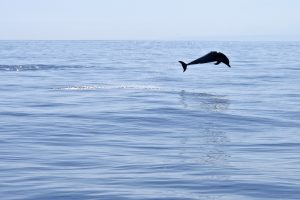29 July 2018: The second part of the 24th Session of the International Seabed Authority (ISA) Council made progress on the draft exploitation regulations on deep-seabed mining, while recognizing the need for further work on the payment mechanism, environmental protection and the Enterprise. The ISA Assembly adopted the Strategic Plan for 2019-2023, with many welcoming the open consultation that preceded it as well as the placing of the ISA’s mandate in the context of the SDGs.
ISA 24 was held from 16-20 July 2018 for the Council and from 23-26 July for the Assembly in Kingston, Jamaica. Meetings of the Legal and Technical Commission (LTC) (2-13 July) and of the Finance Committee (9-12 July) preceded the Council and the Assembly. The Council considered: models for a financial payment system; draft regulations on deep-seabed mining; contractors’ non-compliance issues; and the possible operationalization of the Enterprise. The Assembly considered: a strategic plan for 2019-2023; the annual report of the Secretary-General; and the budget for 2019-2020.
Per IISD Reporting Services, the record-attendance meetings of the ISA Council and Assembly were characterized by a sense of urgency to try and complete the draft exploitation regulations by the target date of 2020, combined with a recognition that “much more work” still lies ahead to fully operationalize the unique regime envisaged in the UN Convention on the Law of the Sea (UNCLOS) on the common heritage of mankind.
On the payment system, the Council discussed potential financial models for the payment system and heard presentations on possible financial models, including royalty or profit-based models. Some participants expressed the perspective that engaging in the regulation of deep-seabed mining in the “Area” is to develop a long-promised monetary benefit-sharing mechanism that can compensate the vast majority of countries that are not in a position to participate in exploitation for the loss of resources that UNCLOS has defined as belonging to humankind as a whole. In its final outcome, the Council agreed to request the LTC to further develop the financial payment regime and elaborate on incentives to contractors, including in relation to benefit-sharing and environmental objectives.
On the draft exploitation regulations, several national delegations emphasized the need to strengthen environmental guarantees in the draft regulations. In its final outcome, the Council agreed to give the LTC time to further revise the draft regulations and invites the LTC to, inter alia: add a principle referring to the balance between resource exploitation and environmental protection; elaborate on the high seas freedoms and the due regard clause; further review the definition of “serious harm”; review the issue of multiple sponsorship and effective control; develop, in parallel with the regulations, a list of priorities for the development of standards and guidelines; and clarify objectives, standards, thresholds, and the relationship between best environmental practices, best available scientific evidence, best available technology, and good industry practices.
The Council further invites the LTC to: elaborate on adaptive management with criteria and procedures, taking into account the principle of mutual consent prior to amendment of contracts and the need for security of tenure; elaborate on the environmental performance guarantee through a transparent process and binding guidelines; include references to the ecosystem approach and the polluter pays principle; strengthen provisions on environmental protection, monitoring, evaluation, and the closure plan to provide a robust environmental framework with inputs from all stakeholders in the body of the regulations rather than in annexes; consider the purposes of funding the environmental liability trust fund and its impacts on the nature of the fund; consider making access to the liability environmental trust fund for coastal states affected by potential transboundary impacts of mining; and clarify compensation mechanisms for environmental damage, among other issues.
The Council discussed the Secretary-General’s report on the status of national legislation relating to deep-seabed mining, including a comparative study of existing national legislation (ISA/24/C/13). China, supported by Cameroon, stressed that the implications of national legislation for exploration and exploitation in the Area must be clarified with respect to sponsoring States’ and contractors’ responsibilities. The Council took note of the report, including on the ongoing comparative study to derive common elements, which is due for completion by the end of 2018.
On the strategic plan, the Assembly’s discussions addressed the common heritage, the Enterprise, environmental protection and the payment system. The Strategic Plan of the ISA for 2019-2023 provides a uniform basis for the strengthening of existing working practices of the ISA, places the ISA in the context of global challenges and the SDGs, and is expected to give direction to ISA work over the next five years. The Strategic Plan contains a mission statement, context and challenges, strategic directions and expected outcomes. The document recognizes the ISA needs to achieve an appropriate balance between multiple objectives and outlines expected outcomes, including: a comprehensive legal framework for carrying out activities in the Area for the benefit of humankind as a whole, including necessary measures to ensure effective environmental protection, effective protection of human life, and orderly, safe, and rational management of the Area’s resources; a mechanism for equitable benefit-sharing; monitoring and review of trends and developments related to deep-seabed mining activities; and the operationalization of the Enterprise.
The next Council meeting, for Part I of the 25th Session, will take place from 25 February – 1 March 2019. [IISD RS Summary of ISA 24] [IISD RS Coverage of ISA 24] [ISA 24 Webpage] [SDG Knowledge Hub Story on Draft Regulations Report]

